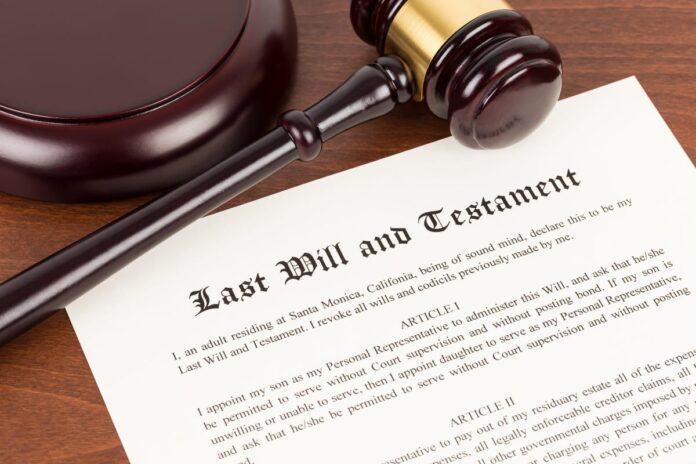
A Will is a document prepared by a testator which contains information on how an estate should be distributed after the death of the testator. Because of its association with death and demise, many feel uneasy with the topic of Wills.
However, in this regard, there is a very important subject which people need to be aware of. Often, one may feel that they have not been provided for properly in the Will of a family member. When a person receives no or minimal provision and believes that they are entitled to receive more portion of the estate, they can contest a Will.
Through the help of experienced Wills and estate planning solicitors, the process of contesting or challenging a Will becomes very smooth and easy. Click here to get in touch with experienced solicitors who can help you to contest a Will and win.
The aim of this article is to discuss a few important concepts in relation to contesting a Will, including the reasons to contest a Will, and the process to do so. Importantly, keep in mind that a Will can be contested both because it is invalid, or because it is valid but does not include enough or appropriate provisions for a person.
The term ‘challenging’ a Will is used more commonly when questioning the validity of a Will. On the other hand, the term ‘contesting’ a Will is used more commonly when disputing the document because of improper provisions.
1. Challenging the Will: Is the Will invalid?

As briefly mentioned above, Wills which are valid are generally contested when people believe that appropriate provisions have not been made in their favor.
However, often it might be possible that the Will is challenged because it is invalid. To do so, the Court must be provided with evidence that supports the argument that the Will is invalid.
Under Australian legislation, each state and jurisdiction has certain different rules around challenging an invalid Will. For instance, in New South Wales, the Succession Act (2006) states that if the person who has prepared the Will – also known as the testator – lacked testamentary capacity at the time of executing the Will, it can be set aside by the Court.
Testamentary capacity refers to the mental ability of the testator to fully comprehend the Will that they are preparing. A testator is said to have testamentary capacity if he/she understands:
- That they are preparing and executing a Will and knows the full effects of doing so;
- Whether they have any obligations towards their family members/friends or other parties; and
- The full nature and extent of their estate or property which they are distributing in the Will.
According to Kania Law Office, legal representation will be required to assist you with formulating documents and gathering evidence to prove that the testator lacked testamentary capacity. Evidence could be in the form of statements from doctors who treated the deceased, or close associates of the deceased.
At the time of executing the Will, the testator must be of sound mind, that is, without any mental illness impacting their ability to make sound decisions. This is also related to testamentary capacity.
When contesting a Will because of lack of testamentary capacity, sufficient evidence must be provided to prove that the testator was not of sound mind while he/she prepared the Will.
2. Contesting the Will: Inadequate provisions

Apart from challenging a Will on the basis of lack of testamentary capacity, many wish to contest a Will because of inadequate provisions made for them. In Australia, to go about contesting Wills, for this reason, you need to first check if you are eligible to do so.
Within the New South Wales jurisdiction, Section 57 (1) of the Succession Act (2006) provides a list of persons who can contest a Will and can make a rightful claim on the deceased’s estate.
For example, children of the deceased, spouse of the deceased, and former spouse of the deceased are some of the people who are eligible to make a claim known as the family provision claim. This claim is made by those who wish to receive a larger entitlement.
How to make sure that you win?

In order to win, it is important to make a strong case when applying for family provision claims. This can only be done when appropriate evidence has been gathered, and all documents are prepared accurately.
To help with this, your estate planning lawyers will provide you with legal advice to help you decide the best course of action. Importantly, your solicitors will get in touch with the executor who is responsible for administering the distribution of an estate.
Once your lawyers have assessed your application and gathered sufficient evidence, negotiation procedures with the executors can be arranged. There is a high chance that your claim will be settled following the negotiation stage.
In case you are not successful at this stage, you will need to try mediation services to reach a satisfactory agreement. However, if mediation does not prove to be successful, you will need to approach the court. While attending the court, having legal representation will be necessary to ensure a smooth and hassle-free court experience.

Conclusion
As you may now realize contesting a Will is not a complicated process when you have the right legal guidance. There are legal avenues such as family provision claims which give people the opportunity to make their claim on the deceased’s estate.
Additionally, it is important to be well-informed about the difference between contesting a Will and challenging the validity of a Will. This is because the legal processes differ for both. In summary, the initial step for both is to check if you are eligible to make any claims on the deceased’s estate.
Once you have checked your eligibility, with the help of professional guidance, you will need to gather evidence and build your case.











